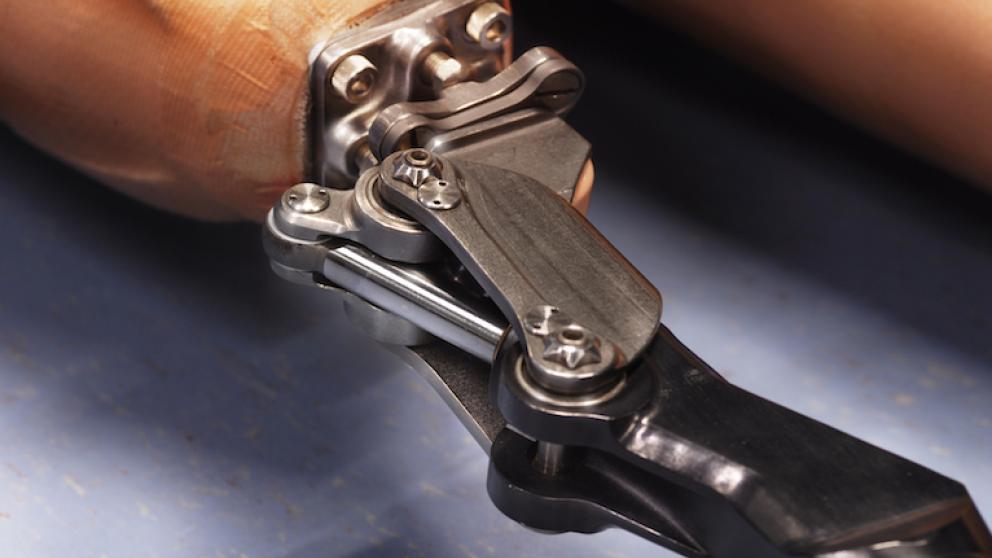Prosthetics research
We have a well-established track record of teaching and research in prosthetics . Our research in prosthetics began in the late 1990s, exploring the control of powered upper limb prosthesis.
Research highlights
Some of the highlights of our work over the past 20+ years include:
- An improved understanding of the fundamentals of human gait, and how different prosthetic devices impact on gait
- Development of novel designs to improve the efficiency of walking with a lower limb prosthesis
- Pioneering of tools to better understand prosthesis users’ behaviours ‘outside of the lab’
- Working with teams in Cambodia and Uganda to address the massive barriers to accessing prosthetic services in low resource settings.
In 2019, the team was awarded the UK Centre for Doctoral Training in Prosthetics and Orthotics. As part of this programme of work, and other related research at Salford, we are actively recruiting volunteers to our research studies. To give an idea of the range of our studies, here are a few of our PhD students talking about their work.
If you are interested in opportunities to participate in our studies, please sign up to our database to receive news of future studies that may be of particular interest to you.
Our current studies:
- Upper limb study - NIHR Study on Evaluation of solutions to improve upper limb prosthesis control. We are looking for volunteers living with trans-radial limb absence, who find their myoelectric hand difficult to control. The study involves two visits, spaced 2-3 weeks apart. Participants can choose to do the visits at home or at one of our labs at the University of Newcastle or University of Salford.
- Below-knee amputation study - Online sessions with users of lower limb adjustable prosthetic sockets, to discuss how they use their socket in daily life.
- Lower-limb prosthetic study -We are looking for volunteers with a below knee amputee of 1 leg only whose amputation was over 18 months ago. You will need to be capable of repeated unassisted walking, single leg standing and be free from infections or inflammations. We need your help to research how adjustable prosthetic sockets influence performance and comfort.

